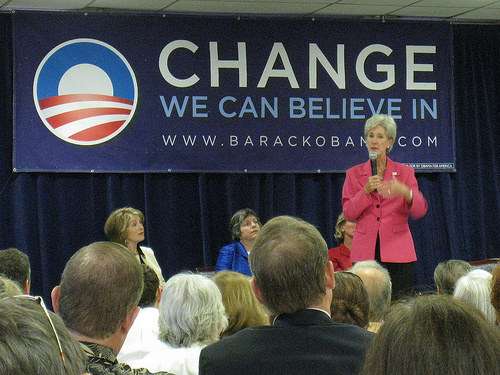Federal Government to Run Majority of ObamaCare Exchanges. Will the Feds Be Ready On Time?

The Washington Post notes that since ObamaCare's passage in 2010, "no one knew if the states would take the lead in setting up the exchanges or if the federal government would end up shouldering most of that work."
As of Friday, however, the issue is settled: The federal government will fully run the exchanges for 26 states, and assist with exchange implementation and administration in an additional seven states.
Now the question is no longer whether Washington will take the lead, but whether the exchanges—both those run by states and those managed by the feds—will actually be ready on time.
There's reason to be skeptical: It's a big task, with major information technology procurement issues that have already caused headaches for early implementation efforts. Not only will the exchanges have to do rapid, accurate income verification to determine eligibility for the law's insurance, subsidies, which some experts have warned will prove more difficult than expected, they will also have to interact with multiple state Medicaid systems and health regulations.
In a budget report published earlier this month, the Congressional Budget Office sounded a note of cautious warning about what to expect from the law, noting that: "CBO and JCT [Joint Committee on Taxation] have slightly reduced their estimates of the rates at which people will enroll in the insurance exchanges or Medicaid as the expansion of coverage is implemented—a process that had already been anticipated to occur gradually. That change reflects the agencies' judgment about a combination of factors, including the readiness of exchanges to provide a broad array of new insurance options, the ability of state Medicaid programs to absorb new beneficiaries, and people's responses to the availability of the new coverage." [Bold added.]
Still, officials at the Department of Health and Human Services, which is heading up the federal exchange efforts, are projecting confidence, promising the exchanges will be open for business this October as called for by the law.
But the law's track record so far does not inspire much faith. Last summer, the American Action Forum found that 47 percent of the law's implementation deadlines had been missed. Local officials aren't exactly having an easy time implementing the law either, even in places where the law isn't subject to significant political opposition. Last September, for example, Washington, D.C.'s acting director told The Washington Post that "when they passed the ACA, they were highly optimistic about the timeline for states to implement exchanges."
That sort of commentary is especially bad news for the feds as they try to set up the majority of the exchanges, because the law was crafted under the assumption that states would be doing all of the work and that the federal government would not be running any of the exchanges at all. If implementation is a challenge for states, the presumed operators of the exchanges, it may be even more of a challenge for the federal government.


Show Comments (28)